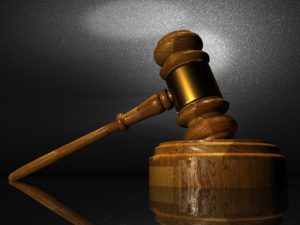
A Federal issued a temporary injunction last week against a Canadian Supreme Court ruling that would have required Google to remove links from its worldwide search results.
Judge Edward Davila’s wrote that the Canadian high court’s ruling that Google had to remove links not just in Canada but worldwide, “undermines the policy goals of Section 230 [of the US Communications Decency Act] and threatens free speech on the global internet.”
The Canadian courts had ruled that Google should remove the links after a British Columbia-based company sued the tech giant. ZDNet reports:
The ruling pertains to the case Google v. Equustek, which started with a 2011 complaint from the company Equustek Solutions. The British Columbia firm charged that a group of Equustek distributors (known as the Datalink defendants) were selling counterfeit Equustek products online.
Datalink continued to sell these goods globally, even after the court ordered it to stop, prompting Equustek to ask Google to intervene. Google initially de-indexed 345 specific webpages associated with Datalink on google.ca.
Equustek then sought an injunction to stop Google from displaying any part of the Datalink websites on any of its search results worldwide. A lower court granted the injunction, and the Canadian Supreme Court upheld it. The ruling’s global implications elicited concern from freedom of speech advocates.
Google asked the U.S. District Court for Northern California to intervene, calling the Canadian court’s ruling repugnant to rights established by the First Amendment. According to ZDNet:
Now that the US District Court has intervened, Google can seek a permanent injunction and ask the Canadian court to modify its original order, according to the Electronic Frontier Foundation.
University of Ottawa Law Professor Michael Geist, who holds the Canada Research Chair in Internet and E-commerce Law, wrote on Friday that the US ruling “is precisely what critics of the Supreme Court ruling feared with the prospect of conflicting rulings, protracted litigation, and legal uncertainty becoming a reality.”
CourtScribes is devoted to creating the verbatim record needed in court cases.
